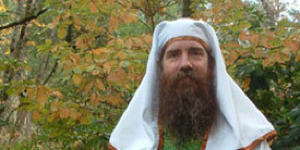Welcome to DU!
The truly grassroots left-of-center political community where regular people, not algorithms, drive the discussions and set the standards.
Join the community:
Create a free account
Support DU (and get rid of ads!):
Become a Star Member
Latest Breaking News
General Discussion
The DU Lounge
All Forums
Issue Forums
Culture Forums
Alliance Forums
Region Forums
Support Forums
Help & Search
An Old Kind of Science | John Michael Greer

Dec. 18, 2013 (Archdruid Report) -- The attempt to conquer nature -- in less metaphorical terms, to render the non-human world completely transparent to the human intellect and just as completely subject to the human will -- was industrial civilization’s defining project.
It’s hard to think of any aspect of culture in the modern industrial West that hasn’t been subordinated to the conquest of nature, and the imminent failure of that project thus marks a watershed in our cultural life as well as our history.
I’ve talked here already at some length about the ways that modern religious life was made subservient to the great war against nature, and we’ve explored some of the changes that will likely take place as a religious sensibility that seeks salvation from nature gives way to a different sensibility that sees nature as something to celebrate, not to escape. A similar analysis could be applied to any other aspect of modern culture you care to name, but there are other things I plan to discuss on this blog, so those topics will have to wait for someone else to tackle them. Still, there’s one more detail that deserves wrapping up before we leave the discussion of the end of progress, and that’s the future of science.
Since 1605, when Sir Francis Bacon’s The Advancement of Learning sketched out the first rough draft of modern scientific practice, the collection of activities we now call science has been deeply entangled with the fantasy of conquering nature. That phrase “the collection of activities we now call science” is as unavoidable here as it is awkward, because science as we now know it didn’t exist at that time, and the word “science” had a different meaning in Bacon’s era than it does today. Back then, it meant any organized body of knowledge; people in the 17th century could thus describe theology as “the queen of the sciences,” as their ancestors had done for most of a thousand years, without any sense of absurdity. The word “scientist” didn’t come along until the mid-19th century, long after “science” had something like its modern meaning; much before then, it would have sounded as silly as “learningist” or “knowledgist,” which is roughly what it would have meant, too.
To Francis Bacon, though, the knowledge and learning that counted was the kind that would enable human beings to control nature. His successors in the early scientific revolution, the men who founded the Royal Society and its equivalents in other European countries, shared the same vision. The Royal Society’s motto, Nullius in Verba (“nothing in words”), signified its rejection of literary and other humanistic studies in favor of the quest for knowledge of, and power over, the nonhuman world.The crucial breakthrough -- the leap to quantification -- was a done deal before the Royal Society was founded in 1661; when Galileo thought of defining speed as a measurable quantity rather than a quality, he kickstarted an extraordinary revolution in human thought.
more
http://worldnewstrust.com/an-old-kind-of-science-john-michael-greer
InfoView thread info, including edit history
TrashPut this thread in your Trash Can (My DU » Trash Can)
BookmarkAdd this thread to your Bookmarks (My DU » Bookmarks)
2 replies, 816 views
ShareGet links to this post and/or share on social media
AlertAlert this post for a rule violation
PowersThere are no powers you can use on this post
EditCannot edit other people's posts
ReplyReply to this post
EditCannot edit other people's posts
Rec (2)
ReplyReply to this post
2 replies
 = new reply since forum marked as read
Highlight:
NoneDon't highlight anything
5 newestHighlight 5 most recent replies
= new reply since forum marked as read
Highlight:
NoneDon't highlight anything
5 newestHighlight 5 most recent replies
An Old Kind of Science | John Michael Greer (Original Post)
Tace
Jan 2014
OP
It's hard to take the author seriously when he mistranslates and misundersrtands the Royal Society's
DavidDvorkin
Jan 2014
#2
marble falls
(57,013 posts)1. Look like a charactor from Zardoz. And just as comprehensible.
DavidDvorkin
(19,469 posts)2. It's hard to take the author seriously when he mistranslates and misundersrtands the Royal Society's